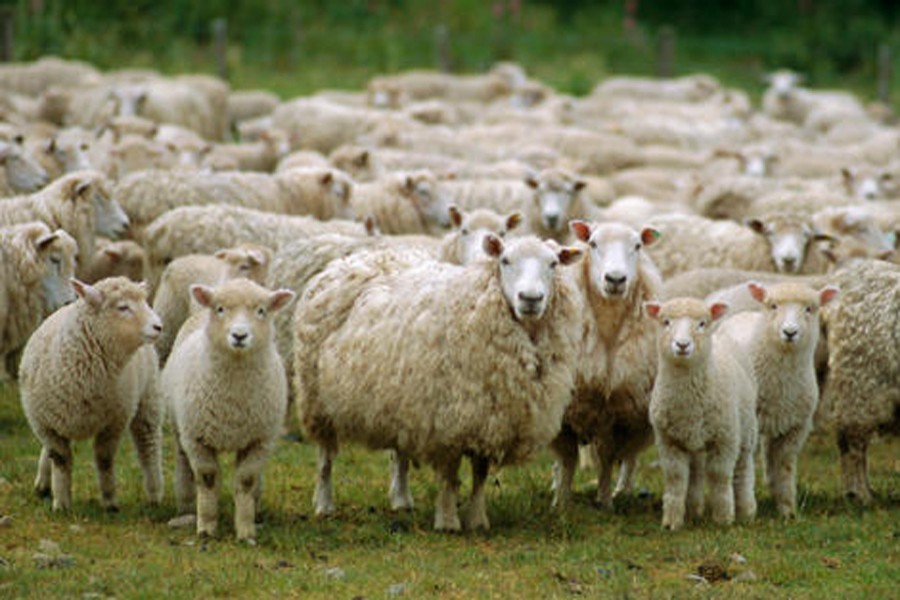Academics and experts in Rajshahi have urged the rural people to boost commercial sheep farming to meet the nutritional demand besides providing valuable wool for expediting the huge opportunity of developing wool-based textile.
Wide-ranging promotion of commercial sheep farming can be effective means of exploring the vast opportunity to boosting woolen fiber and elevating rural livelihood and produce more meat and milk in addition to meet the country’s nutrition demand.
The observation came at the closing and certificate-giving ceremony of a sheep farming training course on Narkelbaria campus of Rajshahi University (RU) on Saturday.
RU’s Department of Veterinary and Animal Sciences (DVAS) and Krishi Goveshona Foundation (KGF) jointly organised the training in association with ‘Validation of Good Practices of On-farm Lamb Production System’ project.
Some 65 people including 60 women from different villages under Paba and Godagari upazilas in the district took part in the three-day training course in three batches. Pro-vice-chancellors of RU Prof Ananda Kumar Saha and Prof Chowdhury Jakaria addressed the session as guests of honour with chairman of the department Prof SM Quamruzzaman in the chair.
Programme director (Livestock and Fisheries) of KGF Dr Kazi Komor Uddin, Prof Abul Hashem from Department of Animal Science of Bangladesh Agricultural University, dean of Agriculture Faculty at RU Prof Shaleha Jesmin and RU Registrar Prof Abdul Bari also spoke. Three co-investigators of the project-DVAS Professor Jalal Uddin Sarder and its Associate Professor Dr Akhtarul Islam and Deputy Chief Veterinary Officer Dr Hemayetul Islam disseminated their expertise on the issue.
Prof Ananda Shaha said quick economic growth of the region can be possible through proper uses and development of livestock resources, BSS reported.
The issue of improvement and conservation of native sheep in society-based and commercial farms should be given priority for the greater interest of poverty reduction and self-employment through the best uses of enormous opportunities of the sector. Prof Jalal Sarder told the meeting that the scientists of Department of Livestock Services and the Bangladesh Livestock Research Institute (BLRI) have developed and produced different types of woolen fabrics and bed-sheet and suiting by using 30 per cent sheep wool, 30 per cent jute and 40 per cent cotton. “Demand for these products is huge in local market and the same could be met by commercial sheep farming,” he said.
Currently, the country is producing 3,000 tonnes of wool from 34 lakh sheep that are being used to make blanket, shawl, bed-sheet and some other winter clothing.


